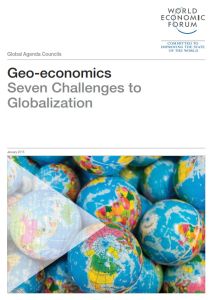Join getAbstract to access the summary!

Join getAbstract to access the summary!
Mark Leonard
Geo-Economics
Seven Challenges to Globalization
World Economic Forum, 2015
What's inside?
“Geo-economics” is changing who the winners and losers are in the global economy.
Recommendation
The World Economic Forum, in this enlightening tour of a fast-changing world, says globalization is ceding dominance to “geo-economics,” an environment in which world leaders use economic weapons to settle international disputes, powerful nations squeeze out periphery countries, and governments intervene in markets. These are among the seven challenges recalibrating the world’s economic mind-set toward a multipolar range of diverging interests. getAbstract recommends this far-reaching report on global trends to investors, executives and futurists.
Summary
About the Author
The World Economic Forum engages leaders across all sectors to improve the state of the world.




















Comment on this summary